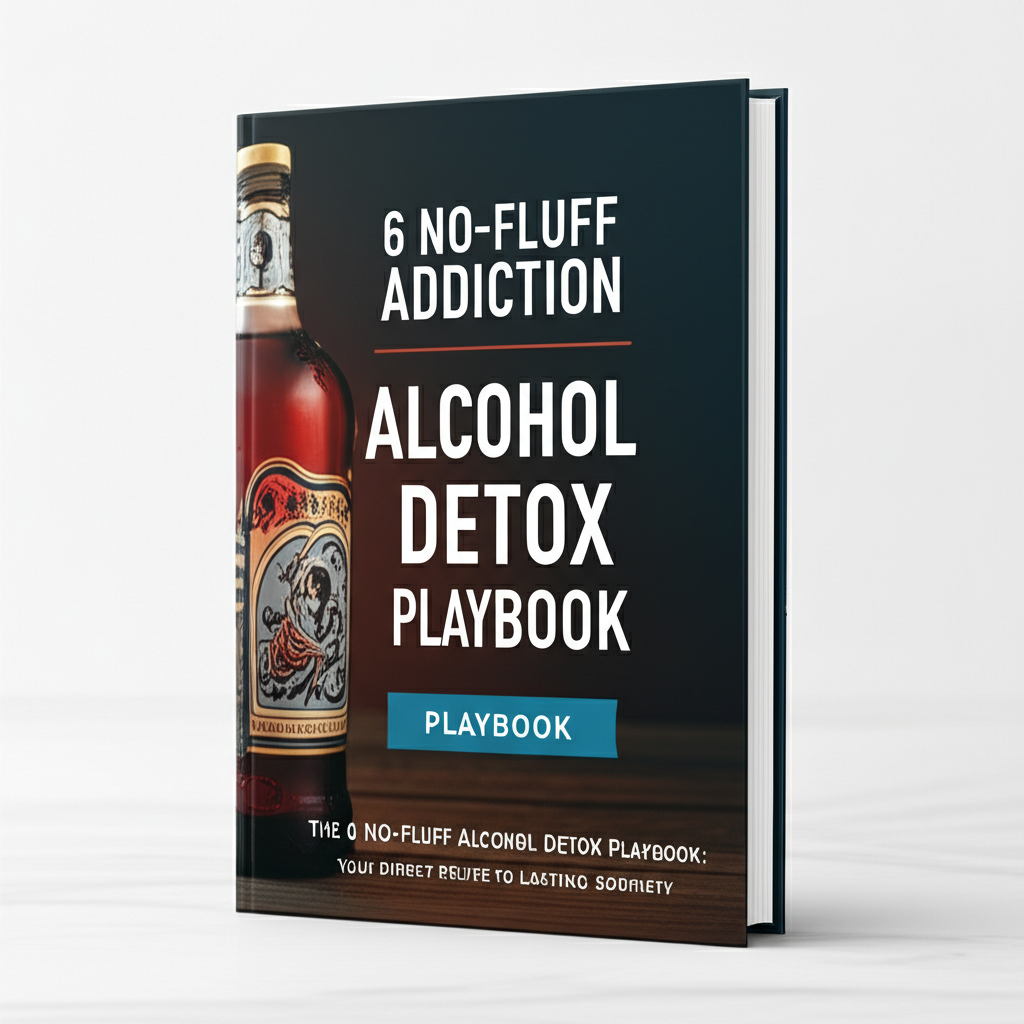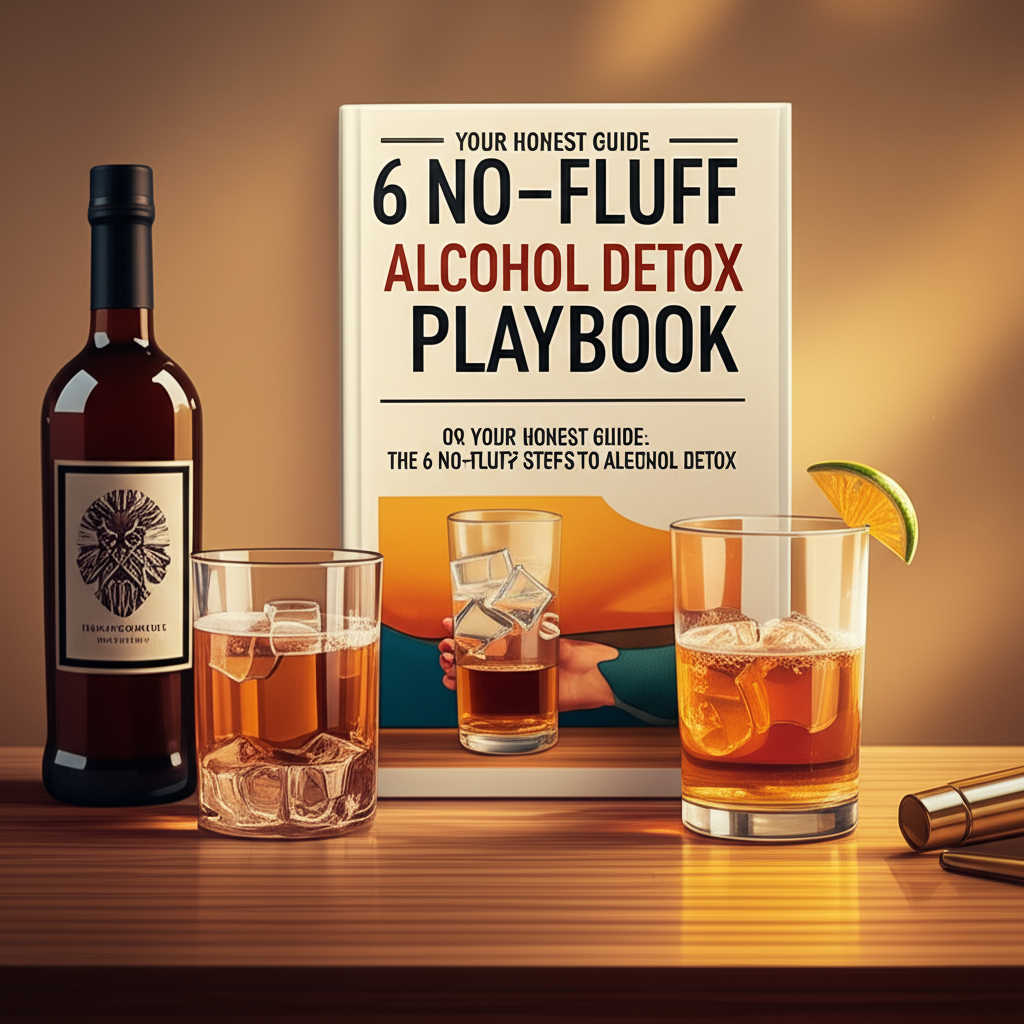The grip of alcohol addiction can feel suffocating, a relentless cycle that steals joy, health, and hope. You might be reading this because you’re tired of that cycle, yearning for freedom, and wondering if there’s a "quick" way out. The good news is that taking the first step towards sobriety is indeed possible, and it can begin with a clear, actionable roadmap.
However, let’s be upfront: there’s no magic bullet for addiction, and a "quick" detox doesn’t mean "easy" or "risk-free." What it does mean is a strategic, informed approach to initiate the process of safely ridding your body of alcohol, paving the way for lasting recovery. This comprehensive guide will walk you through a 3-step roadmap designed to help you understand, prepare for, and navigate the initial stages of alcohol detox with the necessary professional guidance.
We’ll cover everything from understanding what your body goes through during withdrawal to practical steps you can take to create a supportive environment. Our goal is to empower you with knowledge, encouraging you to embark on this transformative journey towards a healthier, sober life, always emphasizing the paramount importance of professional medical supervision.
Understanding Alcohol Detox: What It Is (and Isn’t)
Before diving into the roadmap, it’s crucial to grasp the fundamental nature of alcohol detox. It’s not merely "stopping drinking"; it’s a complex physiological process where your body adjusts to the absence of a substance it has become dependent upon.
The Body’s Reaction to Alcohol Withdrawal
When you drink heavily and consistently, your central nervous system adapts to the constant presence of alcohol, which is a depressant. It essentially "ramps up" its activity to counteract the alcohol’s sedating effects, striving for balance. When you suddenly stop drinking, the alcohol is gone, but your nervous system remains in this hyper-aroused state, leading to a cascade of uncomfortable and potentially dangerous symptoms known as alcohol withdrawal syndrome (AWS).
These symptoms can range from mild to severe, often appearing within 6-24 hours after your last drink, peaking at 24-72 hours, and gradually subsiding over 5-7 days, though some can linger longer.
Common withdrawal symptoms include:
- Mild: Tremors (the "shakes"), anxiety, nausea, vomiting, headache, sweating, insomnia, rapid heart rate.
- Moderate: Increased blood pressure, rapid breathing, more intense tremors, confusion, hallucinations (auditory, visual, or tactile).
- Severe (Medical Emergency): Seizures (alcohol withdrawal seizures), Delirium Tremens (DTs). DTs are a severe form of withdrawal characterized by profound confusion, rapid heart rate, high blood pressure, fever, hallucinations, and severe agitation. Without prompt medical treatment, DTs can be fatal.
Understanding these potential reactions highlights why alcohol detox is not a process to be taken lightly or attempted alone, especially for individuals with long-term heavy drinking habits or a history of severe withdrawal.
The Critical Role of Safety: Why "Quick" Doesn’t Mean "Risk-Free"
The term "quick detox" in this context refers to an expedited and structured approach to initiating sobriety, not a shortcut that bypasses medical necessity. Attempting to detox from alcohol without professional medical supervision is inherently risky and can be life-threatening.
Here’s why medical oversight is non-negotiable:
- Severity of Symptoms: As discussed, withdrawal can lead to seizures, heart problems, and delirium tremens. Medical professionals can predict, prevent, and manage these complications.
- Medication Management: Specific medications (like benzodiazepines) are often prescribed to reduce withdrawal symptoms, prevent seizures, and make the detox process safer and more comfortable. These medications require careful dosing and monitoring.
- Co-occurring Conditions: Many individuals struggling with alcohol addiction also have underlying mental health issues (anxiety, depression) or physical health problems. A medical team can address these simultaneously, ensuring holistic care.
- Personalized Care: A doctor can assess your individual drinking history, health status, and potential risks to create a tailored detox plan that maximizes safety and effectiveness.
Therefore, while this roadmap offers "quick" initial steps, they are always predicated on the foundation of professional medical consultation and guidance. Think of it as a rapid deployment of strategy, not a reckless solo mission.
The 3 Quick Addiction Alcohol Detox Roadmap: Your Initial Steps to Freedom
This roadmap is designed to guide you through the crucial initial phases of preparing for and undertaking alcohol detox. Each step builds upon the last, culminating in a safer, more structured pathway to sobriety.
Roadmap Step 1: Honest Assessment & Professional Consultation (The Foundation)
This is the most critical step, laying the groundwork for everything that follows. It involves taking a brutally honest look at your situation and immediately seeking expert medical advice.
-
Self-Assessment: Understanding Your Starting Point
Before speaking to a professional, reflect on your drinking habits. This information will be invaluable for your doctor.- How much and how often do you drink? Be specific about units, frequency, and duration of heavy drinking.
- Have you experienced withdrawal before? If so, what were the symptoms? How severe were they?
- Do you have any co-occurring physical or mental health conditions? (e.g., anxiety, depression, liver disease, heart problems).
- What is your living situation like? Do you have a supportive environment?
-
The Non-Negotiable: Consult a Doctor
This cannot be stressed enough. Schedule an appointment with your primary care physician, an addiction specialist, or visit an urgent care clinic. Be completely transparent about your alcohol use and your desire to stop. They are there to help, not to judge.- Why a doctor? They will:
- Conduct a thorough physical examination and medical history review.
- Assess your risk for severe withdrawal symptoms.
- Determine if inpatient or outpatient detox is most appropriate for you.
- Prescribe necessary medications to manage withdrawal symptoms safely.
- Provide referrals to addiction treatment centers or specialists.
- Why a doctor? They will:
-
Discussing Your Detox Options
Based on your assessment, your doctor will recommend the safest detox environment.- Inpatient Detox: For severe dependence, a history of severe withdrawal, or co-occurring medical conditions. You reside at a facility where medical staff monitor you 24/7. This is often the safest and most comfortable option for those at high risk.
- Outpatient Detox: For mild to moderate dependence, with good home support, and no history of severe withdrawal. You live at home but attend regular medical appointments for monitoring and medication.
- Medication-Assisted Treatment (MAT): This involves using medications (like Naltrexone, Acamprosate, Disulfiram) alongside counseling and behavioral therapies to prevent relapse and support long-term recovery. While some MAT medications can be initiated post-detox, certain medications are used during detox to manage symptoms.
-
Setting Realistic Expectations
Understand that detox is just the first hurdle. It addresses the physical dependence. The psychological battle and the journey to sustained sobriety begin after detox. This initial consultation helps you understand the entire scope of the journey.
Roadmap Step 2: Preparing Your Environment & Mindset (Setting the Stage for Success)
Once you have a medical plan in place, the next step is to prepare your immediate surroundings and mental state for the challenge ahead. This proactive preparation can significantly impact your comfort and success during detox.
-
Decluttering Your Space: Removing Triggers
Your home environment should become a sanctuary for recovery.- Remove all alcohol: Pour it down the drain, give it away, or dispose of it. No "just in case" bottles.
- Eliminate drinking paraphernalia: Glasses, bottle openers, shakers – anything that reminds you of drinking.
- Identify and remove other triggers: This might include certain snacks, music, or even TV shows that you associate with drinking.
- Example: If you always drank a beer while watching a specific sports game, find an alternative activity or change your routine for that time.
-
Building a Support System: Don’t Go It Alone
Inform trusted individuals about your decision to detox.- Friends & Family: Ask for their understanding and practical support (e.g., driving you to appointments, checking in on you).
- Support Groups: Attend an online or in-person meeting of groups like Alcoholics Anonymous (AA), SMART Recovery, or similar peer support networks before your detox starts. Connecting with others who understand can be incredibly empowering.
-
Nutritional & Hydration Prep: Fueling Your Body
Your body will be under immense stress during detox. Prepare it by focusing on health.- Stock healthy foods: Easy-to-prepare, nutritious meals. Think broths, lean proteins, fruits, and vegetables. Avoid sugary, processed foods that can exacerbate mood swings.
- Hydrate: Buy electrolyte-rich drinks (like sports drinks, coconut water) and plenty of plain water. Dehydration can worsen withdrawal symptoms.
- Supplements (with doctor’s approval): Discuss vitamin deficiencies common in heavy drinkers, especially B vitamins (Thiamine). Your doctor may recommend specific supplements.
-
Mental Fortitude: Cultivating Resilience
Detox is mentally demanding. Start preparing your mind.- Acknowledge the Challenge: It will be difficult, but it is temporary, and it is worth it.
- Set Clear Intentions: Remind yourself why you’re doing this – for your health, family, future.
- Practice Stress Reduction: Learn simple breathing exercises, meditation techniques, or engage in calming hobbies (reading, gentle music) that you can turn to during moments of distress.
-
Creating a "Crisis Plan": What to Do When Cravings Hit
Anticipate potential challenges.- Identify your "safe person" to call: Someone who knows your situation and can offer encouragement or practical help.
- List coping strategies: Distraction techniques, mindfulness, calling your sponsor or therapist.
- Know when to seek emergency help: Have the numbers for your doctor, local emergency services, or a crisis hotline readily available.
Roadmap Step 3: Executing the Initial Detox Plan (Under Guidance)
With your medical plan and supportive environment in place, you’re ready to execute the initial detox phase. Remember, this step is always done under the direct supervision and guidance of medical professionals, whether in an inpatient facility or through closely monitored outpatient care.
-
Medication-Assisted Withdrawal (If Prescribed)
Your doctor will likely prescribe medications to manage withdrawal symptoms.- Benzodiazepines (e.g., Ativan, Valium, Librium): These are commonly used to calm the nervous system, reduce anxiety, prevent seizures, and manage tremors. They are carefully tapered off to avoid dependence.
- Anti-seizure medications: May be used in individuals with a history of alcohol-related seizures.
- Other supportive medications: To alleviate nausea, insomnia, or other specific symptoms.
- Crucial: Take all medications exactly as prescribed. Do not self-medicate or alter dosages.
-
Symptom Management: Practical Comfort Measures
While medication handles the severe aspects, you can aid your comfort.- For Nausea & Vomiting: Sip clear broths, ginger ale, or bland foods (crackers, toast).
- For Anxiety & Agitation: Use the stress-reduction techniques you practiced (deep breathing, quiet activities). Your doctor may also adjust medication.
- For Insomnia: Maintain a consistent sleep schedule, ensure your room is dark and quiet, and avoid caffeine. Medication may be prescribed if necessary.
- For Headaches & Body Aches: Over-the-counter pain relievers can be used if approved by your doctor.
- Example: Think of your body like a car running on the wrong fuel for a long time. The detox process is like carefully flushing out the old fuel and introducing the right one. It’s a delicate process that needs expert hands.
-
Hydration & Nutrition During Detox
Even if you don’t feel like eating, maintaining hydration and some nutrition is vital.- Sip fluids constantly: Water, electrolyte drinks, clear broths.
- Small, frequent, bland meals: Focus on easily digestible foods to avoid upsetting your stomach. Nutrient-rich foods help your body heal.
-
Rest & Gentle Activity
Your body is working hard to rebalance.- Prioritize rest: Sleep when you can. Your body needs to recover.
- Gentle movement (if safe): Light walks can help with restlessness and improve mood, but only if you feel up to it and your medical team approves. Avoid strenuous exercise during acute withdrawal.
-
Continuous Monitoring
Whether inpatient or outpatient, regular check-ins with your medical team are paramount. They will monitor your vital signs, assess your symptoms, and adjust your treatment plan as needed. Do not hesitate to report any new or worsening symptoms.
Beyond Detox: The Journey to Lasting Sobriety
Completing alcohol detox is a monumental achievement, but it’s crucial to understand that it’s merely the first step on a longer journey. Detox addresses the physical dependence, but addiction is a complex disease with psychological, emotional, and social components that require ongoing attention.
The Importance of Aftercare
Successfully navigating detox opens the door to sustainable recovery. This requires a robust aftercare plan.
- Therapy and Counseling:
- Cognitive Behavioral Therapy (CBT): Helps identify and change negative thought patterns and behaviors associated with drinking.
- Dialectical Behavior Therapy (DBT): Focuses on emotional regulation, distress tolerance, and interpersonal effectiveness.
- Individual and Group Therapy: Provides a safe space to explore the root causes of addiction, develop coping mechanisms, and build communication skills.
- Support Groups: Continue attending meetings like AA, SMART Recovery, or other peer support groups. The shared experience, accountability, and mentorship found here are invaluable.
- Lifestyle Changes:
- Healthy Diet and Exercise: Boosts mood, energy levels, and overall physical health.
- Developing New Hobbies and Interests: Replaces drinking-related activities with fulfilling alternatives.
- Stress Management Techniques: Mindfulness, meditation, yoga, or creative outlets help manage triggers and prevent relapse.
- Addressing Root Causes: Often, addiction stems from unresolved trauma, mental health issues, or chronic stress. Aftercare provides the tools and support to address these underlying issues.
Relapse Prevention Strategies
Relapse is a common part of the recovery journey for many, but it doesn’t have to be the end. Proactive strategies can significantly reduce the risk.
- Identifying Triggers: Understand what situations, emotions, people, or places make you want to drink.
- Developing Coping Mechanisms: Have a plan for how you’ll respond to triggers (e.g., call a sponsor, use a relaxation technique, leave the situation).
- Building a Strong Support Network: Surround yourself with sober, supportive individuals who uplift you.
- Regular Check-ins: Continue therapy sessions or doctor appointments to monitor progress and address any emerging challenges.
- Practicing Self-Care: Prioritize your physical and mental well-being to build resilience against cravings and stress.
Conclusion: Your First Steps to a Brighter Future
Embarking on the journey to sobriety is one of the bravest decisions you can make. While the allure of a "quick fix" is understandable, a truly effective and safe alcohol detox requires a structured, informed approach. This 3-step roadmap – Honest Assessment & Professional Consultation, Preparing Your Environment & Mindset, and Executing the Initial Detox Plan (Under Guidance) – provides a clear pathway for your initial steps.
Remember, the cornerstone of this roadmap is professional medical supervision. Never attempt to detox from alcohol alone due to the significant health risks involved. By consulting with healthcare professionals, preparing your surroundings, and committing to your recovery, you’re not just stopping drinking; you’re reclaiming your health, your relationships, and your future.
Detox is the challenging but necessary first chapter. Embrace the support available, commit to the process, and step confidently into a life of lasting sobriety. Your brighter future starts now.








